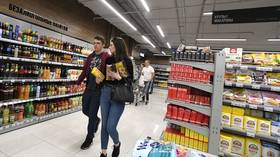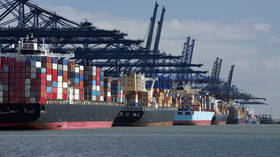Russia won’t repeat economic mistakes of USSR – Medvedev

Russia’s economy will not be reduced to the defense industry alone, despite the conflict with Ukraine and Western sanctions, former President Dmitry Medvedev told journalists on Sunday. Imbalances in the economy will not be allowed to develop, he said, adding that the country is unlikely to suffer the fate of the Soviet Union.
“There is currently no threat of economic militarization in a way, in which it existed [in the USSR] in the 1970s and 1980s,” Medvedev said. The former president argued that the Soviet Union gave too much priority to the defense industry. To avoid an imbalance, “priorities just need to be set correctly and major macroeconomic indicators monitored,” he added.
Russia does actually need to boost its defense industry, he said, adding that it is necessary to “lay the groundwork for the future” even after the Ukraine conflict ends. However, taking these steps will not affect other economic sectors, he believes.
The USSR lacked a market system and also the strong consumer goods sector that modern Russia has, Medvedev said, adding that had the West imposed sanctions on the USSR at that time, “we would have had a hard time.”
Now, Russia’s “market does not feel any colossal downturns even despite the sanctions,” the former president said. He lauded Russia’s agriculture sector, saying not only does it allow Russia to meet its own food supply needs, but also enables it to “feed others.”
Russia has also managed to keep the inflation rate lower than in many European nations, Medvedev said. “They instigated this campaign, started to fight us and now some nations have an inflation rate of between 15% and 20%,” he said, noting that inflation in Russia is on track to come in at 6% in March and subsequently drop to 4%.
Earlier on Sunday, Russian President Vladimir Putin said the EU is increasing its dependence on Beijing much faster than Moscow is. RIA Novosti reported in March that Russia and China topped the list of nations with the biggest trade surpluses last year.














